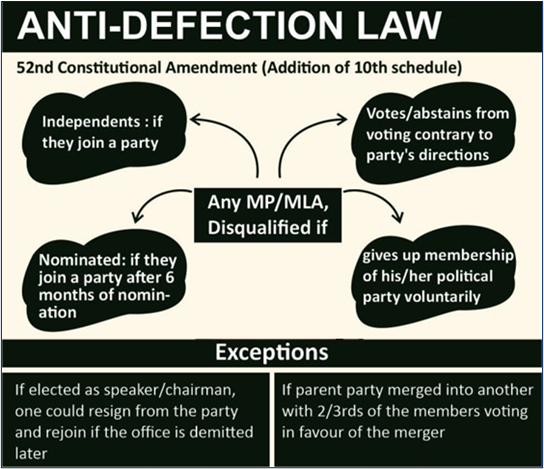PREVIOUS
Utkal Keshari Parida case – 2013
June 20 , 2025
258 days
1102
0
- The Speaker M. Appavu can entertain a petition by an elector of Bodinayakanur against former Chief Minister and MLA of the constituency O. Panneerselvam.
- It was also by the Supreme Court’s verdict in the Speaker of Orissa Legislative Assembly vs Utkal Keshari Parida, 2013 case.
- However, this position is not in conformity with the 1986 Rules of the Tamil Nadu Assembly regarding disqualifications.
- It explicitly states that only an MLA can submit any such petition.
- Even in the Odisha case, the locus standi of a non-member of the House in submitting a petition for disqualification of four legislators was raised.
- But the Supreme Court held that not only a Member of the House, but any person interested would also be entitled to bring to the notice of the Speaker the fact.
- It may be that a Member of the House had incurred disqualification under the Tenth Schedule to the Constitution of India.
- As regards the Tamil Nadu Assembly, Rule 6 — References to be by the petitions — deals with the matter of who can give the petition.
- Sub-rule (2) says: “A petition in relation to a member may be made in writing to the Speaker by any other member.”
- Here, the term, “member,” as per Rule (2) titled Definitions, means “a member of the Tamil Nadu Legislative Assembly.”
- The last time the disqualification of legislators was carried out was in September 2017.
- Then the then Assembly Speaker P. Dhanapal took action against 18 MLAs of the AIADMK on the grounds that they had “voluntarily given up” their membership of the party.

Leave a Reply
Your Comment is awaiting moderation.


